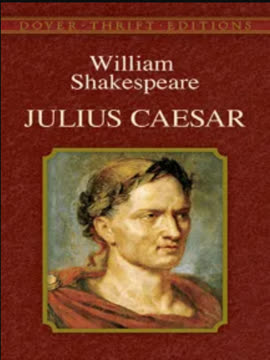Key Takeaways
1. Love is the foundation of all virtues and the path to true happiness
"Love is the essential act of the will. Only love (charity) can effect these three unions."
Love unites us. Love brings about three essential unions: unity with God, unity within ourselves, and unity with others. This threefold union is the essence of peace and the foundation for all virtues. When we truly love, we align our will with God's will, integrate the various aspects of our own being, and connect deeply with our fellow human beings.
Love leads to joy. St. Thomas teaches that joy is the natural consequence of love. When we love God and others authentically, we experience a profound sense of fulfillment and happiness that surpasses mere pleasure or worldly satisfaction. This joy is not dependent on external circumstances but flows from the very act of loving.
Love transforms us. Through love, we become more like the object of our love. When we love God, we grow in holiness and virtue. When we love others, we develop compassion, empathy, and a selfless concern for their well-being. This transformative power of love is the key to personal growth and spiritual maturation.
2. Faith and reason work together to illuminate divine truths
"As stated above, two things are needed for happiness: one, which is the essence of happiness; the other, that is as it were its proper accident, i.e., the delight connected with it."
Complementary faculties. Faith and reason are not opposed but complementary faculties that work together to help us grasp divine truths. Faith provides the foundation and context for our rational inquiry, while reason helps us understand and articulate our faith more deeply.
Limits of reason. While reason can demonstrate many truths about God and morality, it has limits. Some divine mysteries, such as the Trinity or the Incarnation, surpass human understanding and can only be known through revelation and accepted by faith.
Faith seeking understanding. St. Thomas advocates for a "faith seeking understanding" approach, where believers use their rational faculties to explore and deepen their faith, while remaining open to divine revelation and the teachings of the Church. This balanced approach avoids both blind fideism and rationalistic skepticism.
3. Grace perfects nature, empowering human freedom and virtue
"Grace turns nature on, not off. Grace perfects nature rather than destroying it or setting it aside."
Divine empowerment. Grace does not override or replace our human nature but elevates and perfects it. God's grace enables us to fulfill our true potential as human beings, empowering us to choose good and grow in virtue.
Freedom and responsibility. Divine grace works in harmony with human free will. God's grace initiates and supports our good actions, but we remain free and responsible for our choices. This cooperation between grace and free will is a mystery that preserves both God's sovereignty and human dignity.
Growth in virtue. Through grace, we can develop habits of virtue that become "second nature" to us. These virtues, both natural and supernatural, enable us to act consistently in accordance with God's will and our own true good.
4. Charity transforms the soul, uniting us with God and neighbor
"Charity is not confined to Christians. Since all men have an innate, natural knowledge of God (as St. Paul says in Romans 1), all men are capable of charity, i.e., 'something is given to the needy with (human) compassion and for God's sake'."
Divine love in us. Charity is not merely human love but a participation in God's own love. It is infused into our souls by grace and enables us to love God for His own sake and to love others as God loves them.
Universal scope. While the fullness of charity is found in the Christian life, all people are capable of acts of charity to some degree. This reflects the universal human capacity for goodness and the working of God's grace beyond the visible boundaries of the Church.
Transformative power. Charity transforms our entire being, orienting all our actions and relationships toward God. It is the "form" of all virtues, giving them their ultimate meaning and direction. Through charity, we become more like Christ and fulfill our vocation to love.
5. True peace comes from aligning our will with God's will
"In His will, our peace."
Source of peace. Authentic peace is not merely the absence of conflict but the positive state of being in harmony with God's will. When we align our desires and choices with God's wisdom and love, we experience inner tranquility and right relationships with others.
Overcoming division. Sin causes division within ourselves, with others, and with God. By submitting our will to God's will, we overcome these divisions and find integration and reconciliation. This peace surpasses all understanding and can persist even in the midst of external difficulties.
Active pursuit. Peace is not a passive state but an active alignment of our will with God's. It requires ongoing discernment, surrender, and trust in God's providence. As we grow in this conformity to God's will, we become instruments of His peace in the world.
6. Moral virtue requires prudence and balance, avoiding extremes
"Virtue is not the last end but the way thereto."
Golden mean. Moral virtues, according to St. Thomas following Aristotle, are typically found in a mean between two extremes. For example, courage is the mean between cowardice and recklessness. Prudence, or practical wisdom, is necessary to discern this mean in specific situations.
Integrated virtues. The virtues work together as an integrated whole. Prudence guides all the other virtues, while justice, fortitude, and temperance provide the stability and balance necessary for moral life. The theological virtues of faith, hope, and charity elevate and perfect these natural virtues.
Ongoing formation. Virtue is not achieved once and for all but requires ongoing practice and formation. Through repeated good actions, we develop habits of virtue that make it easier to choose the good consistently. This process of moral growth is a lifelong journey toward human flourishing and union with God.
7. We are called to love God above all and our neighbor as ourselves
"Everyone loves the apparent good. We can't love what appears evil, just as we can't believe what appears false."
Hierarchy of loves. While we are called to love all people, there is a proper order to our loves. We should love God above all, then ourselves in God, then our neighbor as ourselves. This ordered love ensures that all our relationships are properly oriented toward their ultimate fulfillment in God.
Self-love and neighbor-love. Proper self-love is not selfishness but a recognition of our own dignity and worth as created in God's image. This self-love becomes the basis for loving our neighbor, as we recognize the same dignity in them and desire their good as we desire our own.
Universal scope of neighbor-love. Our love for neighbor extends beyond family and friends to all people, even our enemies. This universal love reflects God's own love for all humanity and is a witness to the transformative power of divine charity in our lives.
8. Sin distorts our nature, but God's mercy offers hope and redemption
"We are to love sinners even while hating sins, because God created all persons and their common human nature, and declared it (ontologically) good."
Reality of sin. Sin is not just a violation of rules but a distortion of our nature and a rejection of God's love. It damages our relationship with God, others, and ourselves, leading to spiritual death if left unchecked.
God's mercy. Despite the reality of sin, God's mercy is always greater. Through Christ's redemptive work, we are offered forgiveness and the grace to overcome sin. This mercy does not negate justice but fulfills it in a way that restores and heals the sinner.
Hope for conversion. No one is beyond the reach of God's grace. Even the greatest sinners can be transformed by God's love. This hope should inspire us to pray for sinners, offer fraternal correction when appropriate, and never give up on the possibility of conversion.
9. Human happiness is found ultimately in God, not worldly goods
"If we could have a feeling of peace without real peace, it would be worthless: 'They have healed the wound of my people lightly, saying "Peace, peace" when there is no peace' (Jer 6:14)."
Infinite desire. The human heart has an infinite desire that can only be satisfied by the infinite God. No created good, no matter how excellent, can provide ultimate fulfillment. This explains why even those who seem to have everything the world offers can still experience profound emptiness.
Beatific Vision. Perfect happiness, according to St. Thomas, consists in the direct vision of God's essence in heaven. This "beatific vision" fulfills all our deepest longings and brings perfect joy, peace, and love.
Present foretaste. While perfect happiness awaits us in heaven, we can experience a foretaste of it in this life through grace, virtue, and especially the theological virtue of charity. The more we grow in love of God and neighbor, the more we participate in the happiness of heaven even now.
10. Fraternal correction should be done with wisdom and compassion
"When we have risen above the mood of regarding his awareness or admission of his wrong as a satisfaction to ourselves, then only shall we be able to ponder judiciously and to decide pertinently whether or not it is necessary for us to remonstrate with him for his good."
Motivated by love. Fraternal correction should always be motivated by genuine concern for the other person's good, not by a desire to prove ourselves right or to feel superior. It is an act of charity that seeks the spiritual welfare of our neighbor.
Prudent discernment. Not every sin or mistake requires correction from others. We must prudently discern whether our intervention is truly necessary and likely to be beneficial. Factors to consider include the gravity of the fault, our relationship with the person, and their likely receptivity to correction.
Gentle approach. When correction is necessary, it should be done with gentleness, humility, and respect. We should choose an appropriate time and place, speak privately when possible, and be prepared to offer support and encouragement along with the correction. The goal is always to restore and heal, not to condemn or alienate.
Last updated:
Review Summary
Practical Theology by Peter Kreeft offers spiritual direction from St. Thomas Aquinas, presenting 358 insights from the Summa Theologiae. Readers appreciate Kreeft's clear explanations of complex theological concepts, making Aquinas accessible to laypeople. The book is praised for its depth, humor, and practical applications. Many found it best read slowly, one topic per day, as a devotional. While some struggle with Catholic-specific doctrines, most reviewers highly recommend it for those seeking to deepen their understanding of Christian theology and grow in holiness.
Similar Books
Download PDF
Download EPUB
.epub digital book format is ideal for reading ebooks on phones, tablets, and e-readers.


















